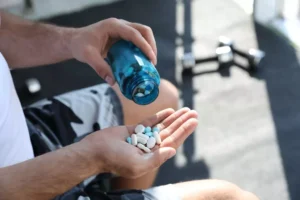
It is important to carefully consider the different types of treatment programs available to ensure you and your family members’ needs are met. You may find there is not an appropriate treatment program in your area for families. family support in addiction recovery One of the symptoms of drug addiction is the priority that drug abusers place on finding drugs and using them. This compulsion can be stronger than their desire to provide for their family or take proper care of their children.

Empirical support for involving families in youth SUD treatment is extensive.
- Navigators are trained staff that help individuals and their families understand addiction and navigate the addiction services system.
- For those in recovery and beyond, a support system can help keep you on a well-balanced path in a number of ways.
- We keenly understand how the unwavering presence and active involvement of one’s loved ones can make a profound difference.
Family members can actively contribute by providing emotional support and encouragement, offering a listening ear and words of encouragement during challenging times. By expressing empathy and demonstrating belief in their loved one’s ability to recover, families can ignite a renewed sense of hope and motivation. Your loved ones can assume healthy roles and behaviors, like holding you accountable for your actions, to encourage and support recovery.

Developing Coping Strategies for Families
- When you live with alcohol use disorder, positive outcomes often involve the entire family.
- In addition to the virulent emotions that drug addiction can cause, it is possible that the addict suffers from an underlying emotional or psychological condition that has placed them at greater risk for an addiction disorder.
- A third is establishing and maintaining a strong sense of connection to others; support helps people stay on track, and it helps retune the neural circuits of desire and goal-pursuit.
- The Care Counseling Center offers multiday intensive outpatient programs and daily outpatient programs to assist addicts and their families with the recovery process.
- An increasing number of high schools and colleges offer addiction recovery resources (CRPS, or Collegiate Recovery Programs) for students, including mentors, workshops, dedicated lounges, and group meetings and activities.
- Nearly 20 million individuals and their families are affected by addiction or substance use disorders every year.
It offers treatment tracks for DWI, mental wellness, offender reentry, vocational, and aftercare. Specialized services are available for those who have co-occurring mental health and chemical abuse issues. CREATE focuses on improving the emotional, physical, and spiritual lives of clients and their families. The journey of recovery, deeply personal and often challenging, underscores the significance of a unified commitment from both the individual and their family. Reaffirming this commitment to recovery means recognizing the ongoing nature of this process, a continuous effort that evolves and strengthens over time.
Tips for Families Dealing With an Addict
- It is no wonder, then, why a key type of recovery capital comes in familial and communal recovery capital.
- In one study, two-thirds of the adults relapsed in social situations in which they experienced urges and temptations to drink or use.
- Techniques such as mindfulness meditation, deep breathing exercises, and regular physical activity can significantly reduce stress levels, promoting a calmer and more focused mind.
However, it’s important to remember that addiction is a disease, and like any other chronic illness, it requires professional treatment and support to overcome. Family support and involvement in recovery can help someone overcome addiction and achieve lasting recovery. This article will explore how family can play an important role in health care matters and your addiction recovery.
- Most alarmingly, the rate of lethal overdoses attributable to opioids has increased markedly in this age cohort, from 3.4 deaths to 5.3 deaths per 100,000 between 2006 and 2015 (Ali et al., 2019).
- Friends and family members who stay informed and take care of their mental and physical health are better equipped to deal with addiction, support their loved ones and put their family on the path to lifelong recovery.
- Researchers have studied the experiences of many people who have recovered from substance use and identified key features of the recovery process.

Leave a Reply